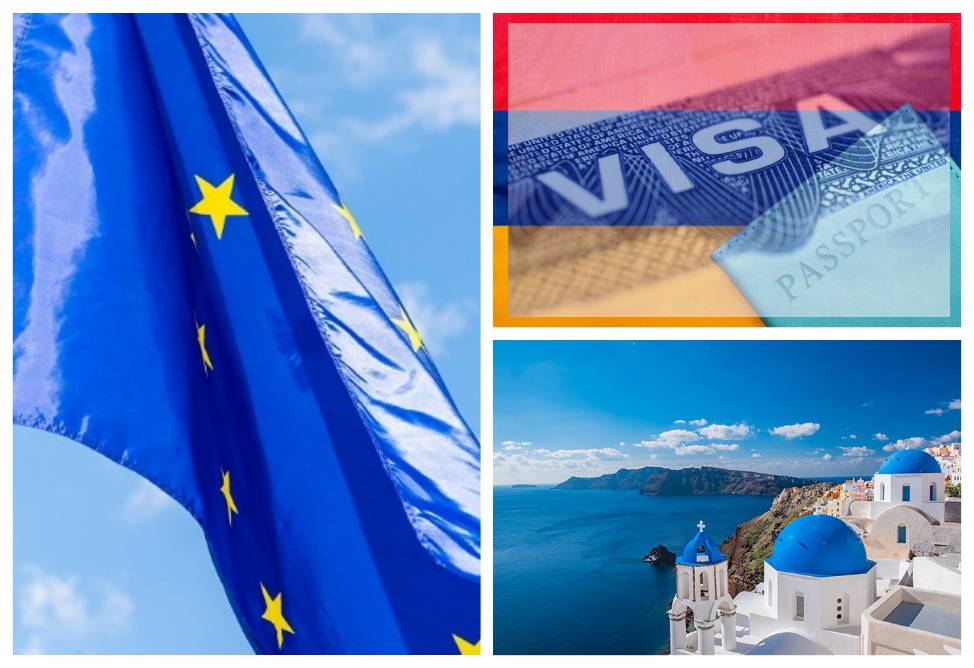To Europe without a visa - is it ever possible?

YEREVAN, May 13. /ARKA/. The next round of discussions regarding visa liberalization between Armenia and the EU was slated for April 2025. While Brussels hasn’t specified the exact timeline, such initiatives typically unfold over a span of 3 to 6 years. Additionally, a proposal for Armenia's accession to the European Union has emerged, marking just the initial steps in a long process that usually spans 15 to 20 years. Take Montenegro as an example: it achieved candidate country status in 2010, and now, in 2025, it’s at the brink of integration but still hasn’t secured membership.
Given the current fluidity in international politics, one might ponder whether Armenia can realistically anticipate a successful resolution to the visa liberalization discussion. As it stands, Europe seems to be leaning towards bolstering its borders and tightening control measures, which does not bode well for ordinary tourists from outside. Schengen visas for Armenians are frequently issued for short durations, aligned strictly with specific travel plans, resulting in family members enduring barriers, long waits, and additional fees paid to visa agencies each time they apply.
What are the current options for traveling to Europe without a visa?
One realistic approach is to acquire alternative citizenship from a country that allows its citizens to enter the Schengen zone without a visa. This way, you won't need to plan your travels far in advance. With this citizenship, you simply present your second passport at the airport. However, it’s important to note that this can be quite a costly endeavor, typically requiring an investment of at least $200,000.
The Caribbean citizenship programs are well-known in this regard, offering a straightforward process that can be handled remotely. These programs emerged in the early 1980s when St. Kitts and Nevis initiated their citizenship-by-investment scheme. The country aimed to reduce its reliance on international creditors and thus began granting citizenship in exchange for investments. Other Caribbean nations soon followed suit. These programs gained significant popularity after a visa-free agreement with the European Union was signed in 2009, allowing citizens of St. Kitts and Nevis to travel to the EU without a visa for stays of up to three months. Additionally, St. Kitts, having been a British colony, allows its citizens to visit the United Kingdom without a visa as well, where they can stay for up to 180 days in a year (which can be done continuously).
Caribbean Citizenship Programs
Currently, there are five standout Caribbean citizenship programs: St. Kitts and Nevis, Grenada, Dominica, Antigua and Barbuda, and St. Lucia. Each program has unique costs and requirements. Typically, candidates have two main avenues to choose from: making a financial contribution to the state development fund or investing in luxury hospitality projects, such as acquiring shares in government-approved initiatives.
Since these programs began, several impressive hotels have been developed, including the Park Hyatt St. Kitts, Cabrits Resort Kempinski, and Six Senses La Sagesse in Grenada. Additionally, the Intercontinental Grenada Resort is currently under construction, with shares still available for those interested in citizenship. Existing hotels, like the Hodges Bay Resort in Antigua, are also participating in the program to support further expansion.
Saint Lucia offers a distinctive option within its passport program that stands out from other Caribbean nations. The country allows private investors to "borrow" funds, granting them citizenship in exchange. Specifically, candidates can acquire government bonds totaling $300,000 USD, after which, in five years, the government repays the full amount. This initiative has been available since 2016 and has enabled numerous applicants to successfully navigate the process, securing passports for their entire families alongside the eventual repayment.
It's important to note that applications for Caribbean citizenship can only be processed through state-licensed agents who are equipped to provide legal guidance to prospective applicants. A prime example of such a service provider is Apex Capital Partners, an international firm. These services are accessible both in-person and online, reflecting the flexible nature of the Caribbean citizenship process. Moreover, this option not only benefits individuals but can also be advantageous for multiple generations within a family, as citizenship status is inherited.
“Golden visa” instead of Schengen visa
Another way to enter Europe is by obtaining permanent status rather than just a tourist visa. Generally, this means you’d need to relocate and become a taxpayer in that country. However, there’s a different option available for those with financial means—“Golden Visas.” With a “Golden Visa” from a European country, you can enjoy residency without the requirement to live there full-time or pass language exams. For instance, Greece offers a “Golden Visa” for five years, which can be renewed, by investing in real estate valued at €250,000. While several countries provide “Golden Visa” programs, Greece remains unique with its focus on real estate investments. For many investors, the chance to own property in the Mediterranean is a significant draw.
For more details on how to participate in the’ Golden Visa’ or Caribbean citizenship programs, check out the website of Apex Capital Partners. -0-
Sofia Silina, APEX Capital Partners



